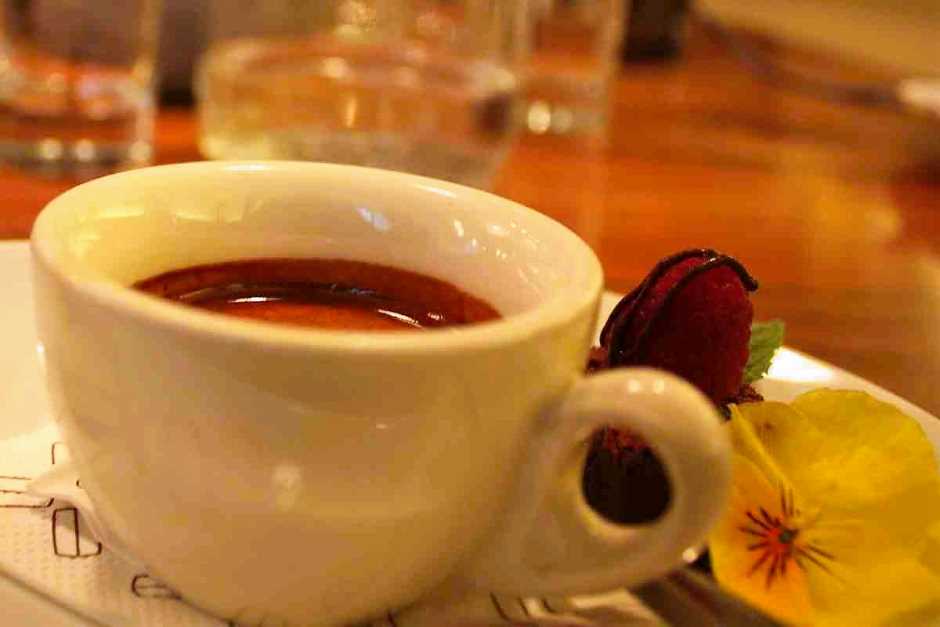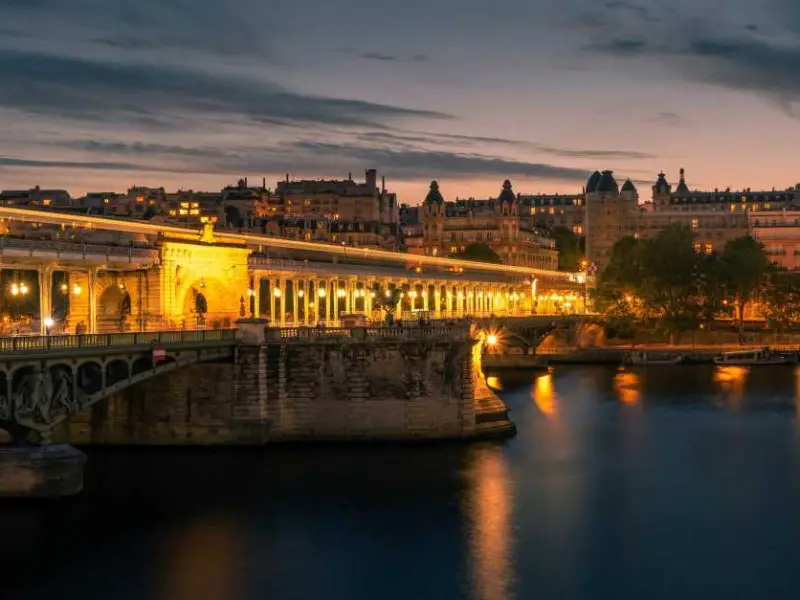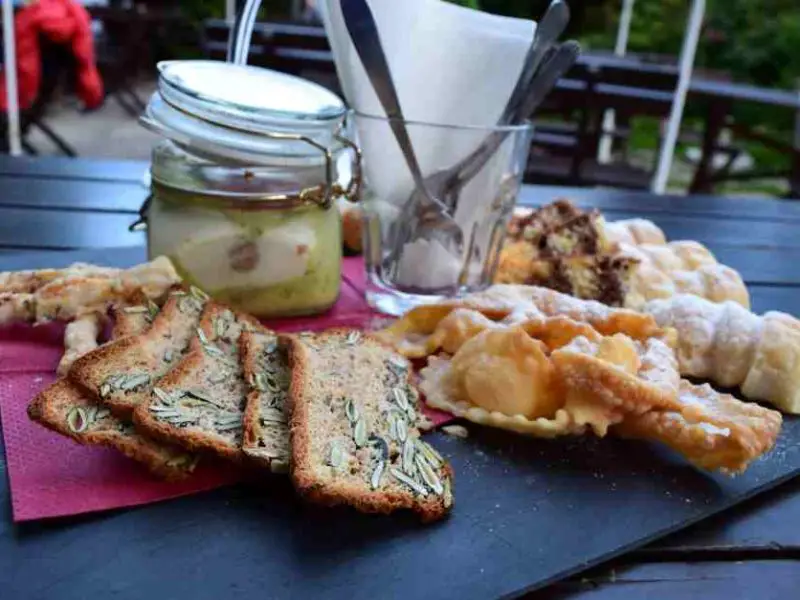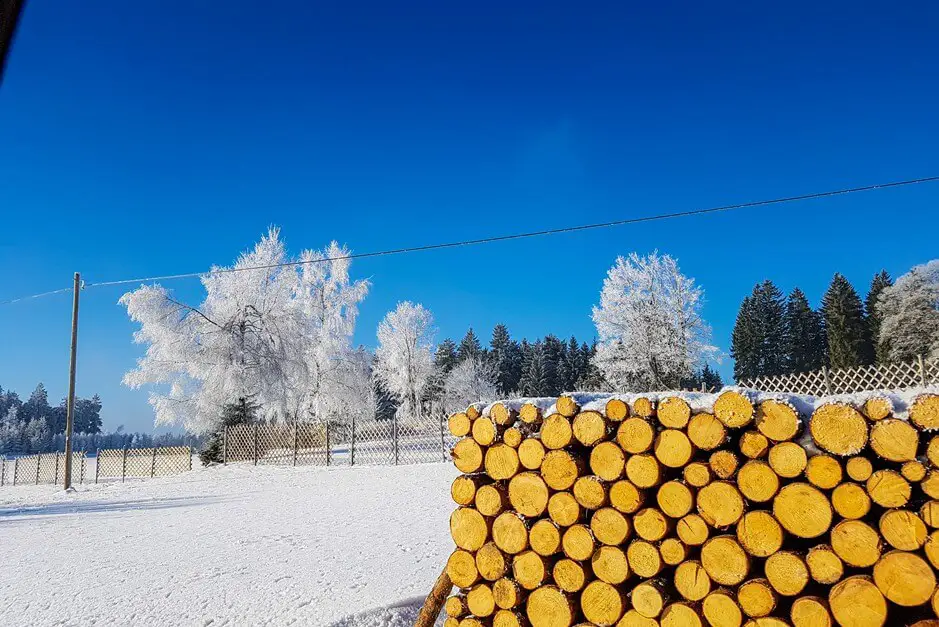Coffee roastery Salzburg in the 220 degree roast house
At the eat and meet festival in Salzburg, restaurants, cafes and shops present their specialties - a festival for connoisseurs in AustriaWe also visited the Salzburg coffee roastery in the 220 Grad Rösthaus, which is located in a side street a little away from the hustle and bustle of the old town. The espresso made from Arabica beans from Ethiopia is a highlight for the palate, as it tastes particularly aromatic and intense. Almost a little like lemon. That's exactly how coffee should taste!
Book your accommodation in Salzburg here *
If you book one of these offers, we receive a commission, which we use to run this blog.
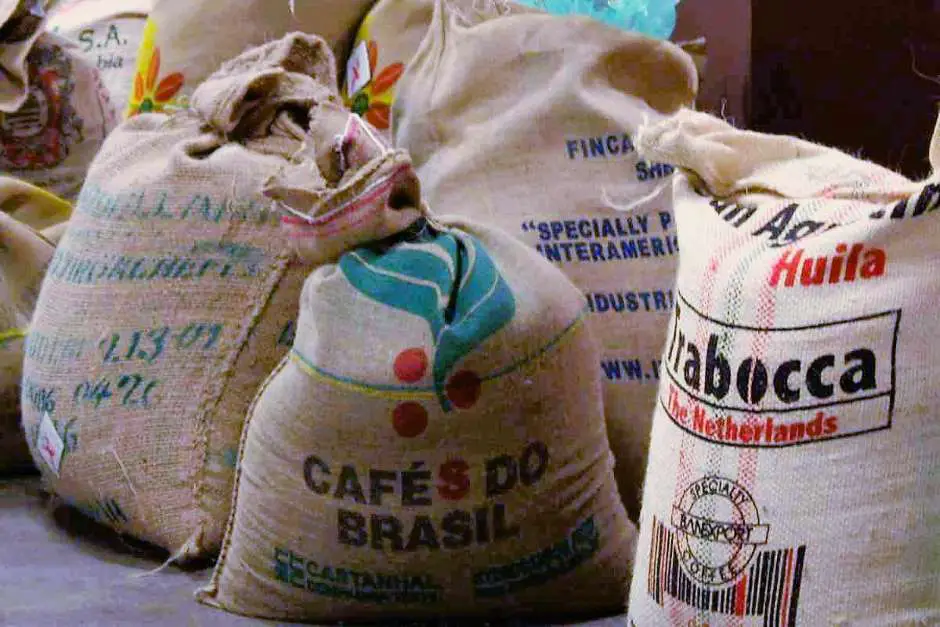
The Rösthaus has a coffee roastery in Salzburg
We then learn that the taste of coffee depends on many factors in the 220 Grad roasting house at Maxglaner Hauptstraße 29 in Salzburg. Alois and Margret Macheiner, the owners of the café, roast their coffee themselves. There are sacks of coffee beans from Huila in Colombia, from Brazil or from Cuba and the highlands of Ethiopia. The beans are waiting to be roasted and sold to coffee lovers in the sales room. Depending on the origin, location and growing area, the coffee produced from them smells and tastes different.
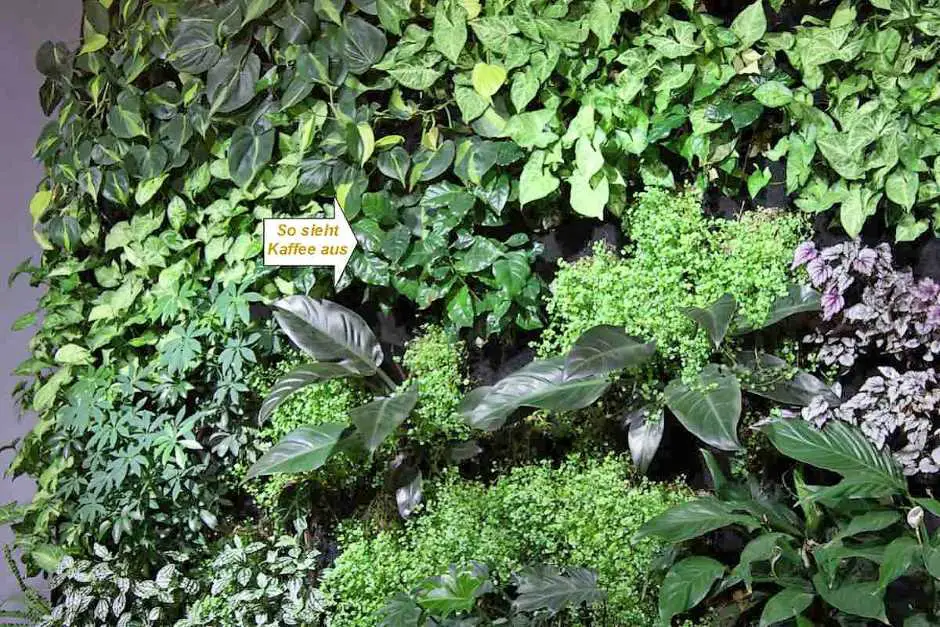
Coffees from all over the world in the Salzburg coffee roastery
The Macheiners have turned their love of coffee into a career. That's why they travel the world in search of coffee varieties and taste experiences that the bean can produce. They get to know their coffee suppliers and the coffee farmers personally. Together with their children, they sometimes help to set up new coffee plantations or to harvest coffee beans.
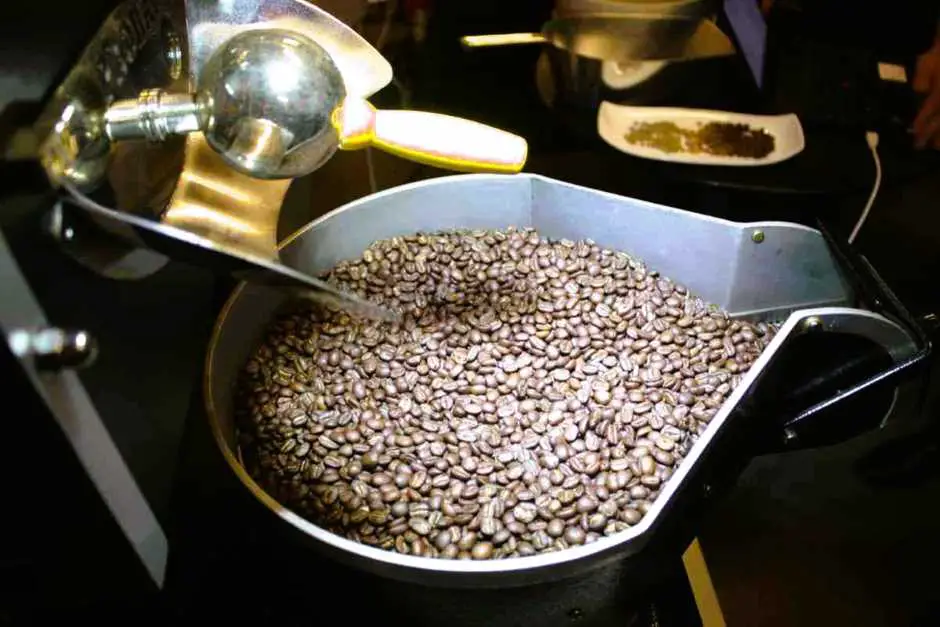
Two types of coffee beans
At the Salzburg coffee roastery, we learn that there are two types of coffee beans. The Arabica bean comes from the highlands of Ethiopia. Their coffees are mild and aromatic. From there it began its triumphal procession around the world. There is also the Robusta bean, which grows in the lowlands and produces coffee that tastes intense. Coffee is often grown by small farmers. They dry the beans and finally deliver them to the countries where it is drunk. “Often,” Margret Macheiner explains to us, “the farmers don't drink any coffee themselves. Therefore, they cannot assess the quality. That's why we try to get them to use the coffee themselves. This is the only way they can get a feeling for what is important to us.”
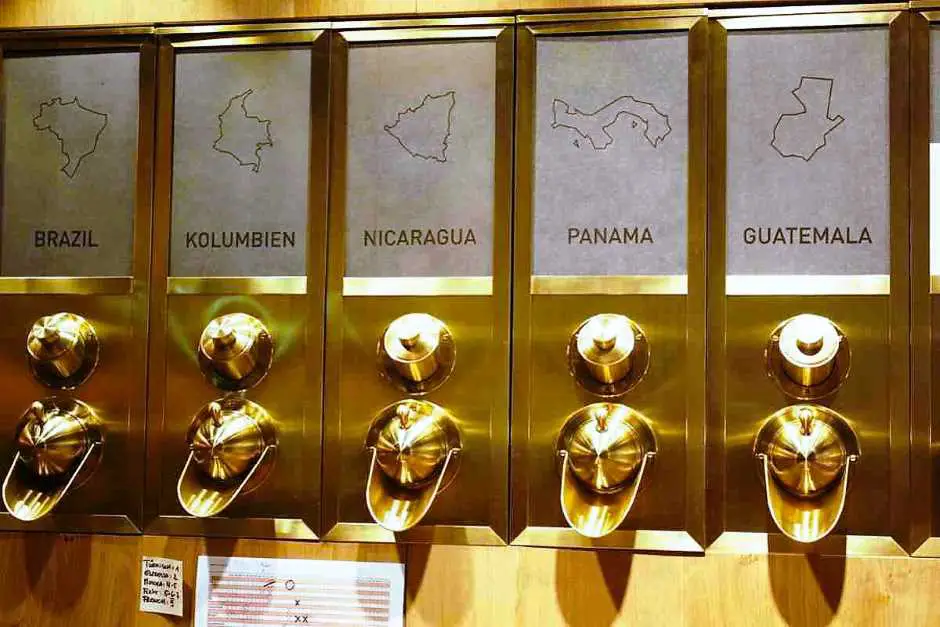
The coffee unfolds its aroma in the Salzburg coffee roastery
Only in the roasting house of 220 degrees in Salzburg does the coffee get its aroma during the roasting process. This determines how the coffee tastes in the cup. “We have to pay close attention to temperatures and the duration of the roasting process. If the beans are roasted too long or too hot, the coffee quickly becomes bitter,” explains Alois Macheiner.
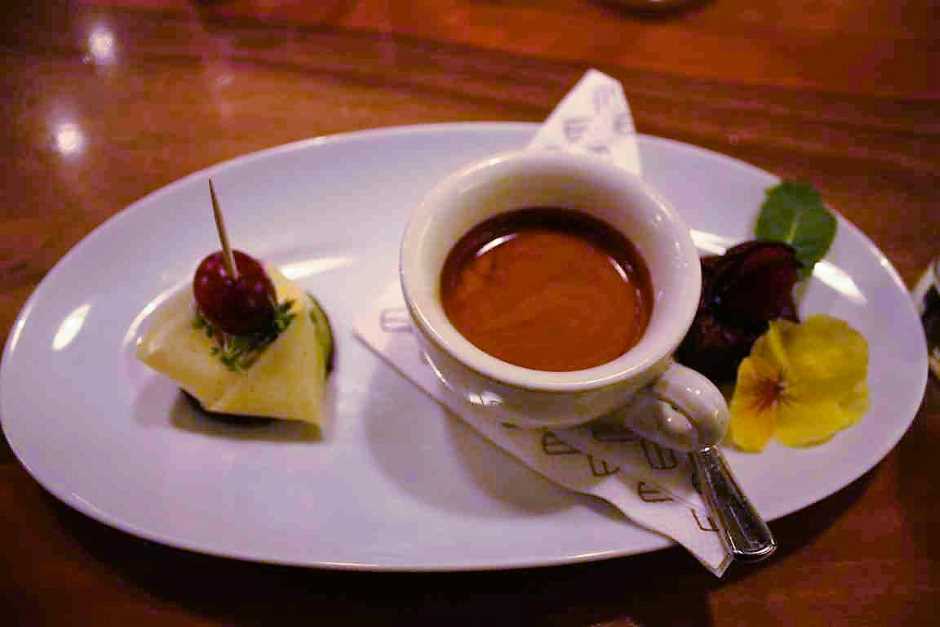
Coffee tasting in the Salzburg coffee roastery
At our coffee tasting, we experience for ourselves how different coffee from different regions of the world can taste. The range of flavors extends from coffee from the highlands of Ethiopia or highland coffee from Nicaragua and Guatemala to Robusta coffees. One thing is certain for us after this visit to the Macheiners. We will therefore pay more attention to the bean and its origin when buying coffee in the future. This is the only way we can get the best coffee afterwards.
opening hours 220GRAD Rösthaus
Mon-Fri 14-19 clock, Sa 9-13 clock
Maxglaner Hauptstraße 29
5020 Salzburg
0662/909897
Tip: You can stay in Salzburg in these hotels.
If you book one of these offers, we receive a commission, which we use to run this blog.
Gudrun Krinzinger from Reisebloggerin.at describes how to taste coffee during her visit to the Salzburg coffee roastery:
http://www.reisebloggerin.at/2014/04/220-grad-roesthaus-und-cafe-salzburg/
Finally, Elena Paschinger from Creativelena shows in her blog how the coffee roasting process works:
http://www.creativelena.com/reiseblog/meine-gourmetreise-nach-salzburg-beim-letzten-mahl-ist-mahlen-angesagt
You can also read about what happens before coffee comes to Europe in Claudi's blog around the world:
How I sniffed highland coffee in Honduras
Travel Arrangements:
Parking at the airport
Here you can reserve your parking space at the airport.
Arrival by plane, train and bus
Compare and book flights here*. (Advertisement) Lufthansa, Austrian Airlines and other airlines fly to Salzburg. It is possible to travel to Salzburg by train Timetable and booking*. Also drive Long-distance buses * to Salzburg.
If you book via a link marked *, we receive a commission, which we use to run this blog.
Car Rentals:
Cheap car hire - book quickly and easily!
Accommodation in Salzburg *
With our partner booking.com you can easily book other hotels and accommodations online.
If you book via a link marked *, we receive a commission, which we use to run this blog.
Do you like to travel by motorhome?
- Do you want to rent a motorhome? Then you will find information and a selection in these booking options. Or would you rather stay in one roof tent on the car? Also the overnight stay in camping tents is possible.
- Check our packing list for campers to see whether you have packed everything for your motorhome tour.
- Austria has a comprehensive network of campsites. On some, after a day trip, you can have dinner in the Dutch Oven or on the portable grill prepare. You can also find Dutch oven accessories you can find here. Maybe you'll brew yourself a coffee from the Salzburg coffee roastery afterwards?
- There are pitches in all parts of the country. You can only stay one night outside of camping sites and pitches. But beware: there are bans (Tyrol, Vienna). campsites in Austria* here.
- Here you can find tips for Cooking in the mobile home.
- Why is a folding e-bike useful when camping?
If you purchase via a link marked *, we receive a commission, which we use to run this blog.
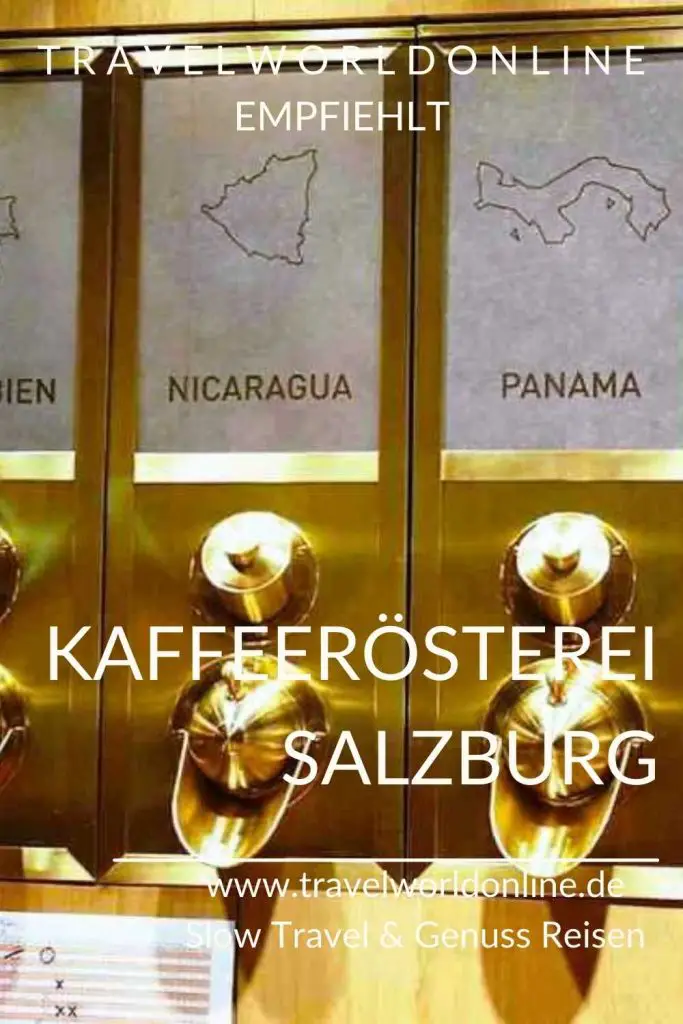
Do you know this?
- Coffee & culture in a café in Salzburg
- The best gas grill recipes for beginners
- Buy gas grill online
- Gas grill accessories - why is it worth it?
- Grill Spare Ribs with a Rib Marinade
- Two cafes in Neanderland
- How do you taste wine correctly?
- Toronto Chinatown - Impressions
- Toronto and the cultures of the world
- Enjoy typical Scottish food and drink
- Everything for goose eating: on a shopping tour in Burgenland
- Lutzmannsburg in Burgenland
- Salzburg landmarks
- A perfect steak from the gas grill
- Making coffee in the camper: How to make coffee in the motorhome
Source: Research in the Salzburg coffee roasting company and the 220GRAD roasting house with the support of Tourismus Salzburg. Our opinions definitely remain our own.
Text Coffee Roastery Salzburg: © Copyright Monika Fuchs and TravelWorldOnline
Photos: © Copyright Monika Fuchs and TravelWorldOnline
Video: © Copyright Petar Fuchs and TravelWorldOnline
